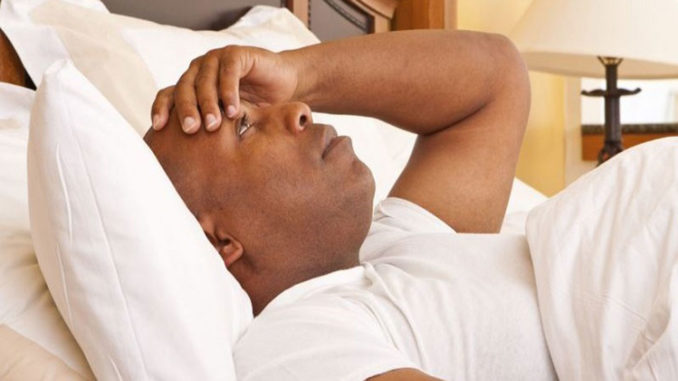
Nigeria is without doubt currently facing frightening socio-economic challenges characterised by high level of criminality, insurgency and economic downturn.
These challenges could worsen if urgent measures are not taken to address one of the by-products of the unsavoury situation: sleep deprivation or what is medically referred to as insomnia.
Researchers say that in a desperate bid to eke out a living, many people are significantly reducing their sleep hours. According to neurologists, an estimated 63 million Nigerians, representing over one-third of the country’s population, may be suffering from
wide-ranging sleep problems. This global epidemic affects about 25 percent of the entire adult population.
A study conducted by the University of Pennsylvania School of Medicine in 2018 showed that 50 percent of adults experience occasional symptoms of insomnia and one in four Americans develop insomnia each year, and as the number of people suffering from insomnia in the US grows, so does the cost of medication. For instance, it costs the US Government more than $15 billion per year in healthcare costs, with the economy losing about $63 billion each year from reduced productivity related to insomnia.
According to the American Insomnia Survey, the billions of dollars in lost revenue comes from a reduced productivity level or absence, which is equivalent to the workers missing 252.7 days of work each year, while on the other hand employers spend roughly $3,200 more in employee healthcare costs. It is, therefore, no surprise that the US Insomnia Market is expected to be worth $4.24 billion by 2021. A critical analysis of the data surrounding sleep disorders shows clearly that insomnia is a growing problem.
Sleeplessness is associated with fatigue, mood disturbances, problems with interpersonal relationships, occupational difficulties and a reduced quality of life, with a negative impact on physical and mental health, i.e. poor memory recall, decreased academic performance, decreased productivity in the workplace and reduced attention, alertness and concentration. Others are poor social interaction, increased risk of hypertension and diabetes, reduced immunity, memory deficit, increased vulnerability to accidents and errors and reduced lifespan.
These are serious consequences to anybody’s wellbeing. However, the demands of the modern world has drastically reduced the number of hours that people sleep because of their lifestyle or nature of work. Consequently, many people, especially in the towns and cities, do not enjoy long hours of sleep as recommended medically, and this has made them vulnerable to various health challenges.
The life of the average Nigerian is stressful. With the level of poverty, criminality and poor governance in the country, most people are unhappy with their lot and live in constant fear for their safety and wellbeing. As a result, they cannot always sleep well enough, and until we have a more responsible and responsive governments which prioritise the wellbeing of the people, the problem will persist along with its attendant consequences.
Since sleep is crucial to the proper functioning of the human body and the overall wellness of man, we, as a newspaper, advise everyone to do all they can to ensure that they get enough sleep, like observing the medically recommended hours of daily sleep to function optimally which is 14 to 15 hours for infants, 12 to 14 hours for toddlers, 10 to 11 hours for children, and seven to nine hours for adults. In fact, researches have shown that one of the three pillars of good health is good sleep. The others are good diet and good exercise.
A good sleep confers the advantage of refreshing a person and making him alert in his daily activities, thereby helping him to carry out the day’s work in a more satisfactory manner. Beside these, sleep also restores and rejuvenates the body, as well as helping to conserve energy.
Sadly, however, the Nigerian environment is not conducive for sound night sleep for most people, not to talk of the luxury of an afternoon nap. All around them are uncontrolled noises, most of which are clearly unwarranted. In some areas, high pitched sounds come from large musical amplifiers, particularly from the night clubs and recreational gardens, hotels and brothels, worship centres and markets. Some have turned their vehicles into moving advertisement shops to promote one product or another, often making the loudest noise they can muster in the process.
With the governance authorities impervious to the issue of noise pollution and control, the high levels of noise in our cities and towns are catastrophic to the wellbeing of the people.
It is our considered opinion that now is the time to have a legislation to regulate and enforce the noise levels acceptable in our residential areas, if none exists.
END

Be the first to comment